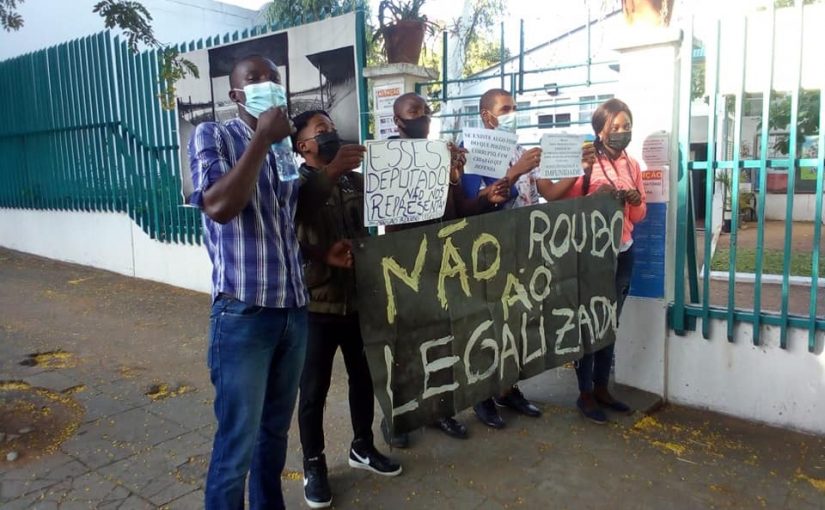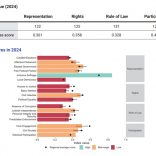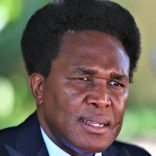Graça Machel turns 80: Chapo praises “illustrious daughter of Mozambique and citizen of the world”
Mozambique: Protest against exorbitant benefits for parliamentary staff – AIM report

Photo: Sala da Paz
Mozambique’s Budgetary Monitoring Forum (FMO), a prominent coalition of civil society organisations, on Tuesday delivered a petition to the Assembly of the Republic, the Mozambican parliament, urging the deputies to revoke the recently passed bill on the Statute of Parliamentary Functionaries and Officials, which has outraged many citizens by offering a huge range of new allowances to parliamentary staff.
FMO spokesperson Adriano Nuvunga, who headed the movement to the parliament building, told the media that civil society wants the bill recalled. The bill enshrines rights and benefits for the parliamentary staff such as an allowance for each session, allowances for holidays, food, and even clothes (on the grounds that the staff may have to attend solemn protocol events).
So extravagant was the bill that the Ministry of Finance threatened not to implement it. The Ministry is obliged to provide the Assembly with an estimate of the cost of new legislation: it put the annual cost of the allowances and benefits for parliamentary staff at 104 million meticais (about 1.8 million US dollars, at the current exchange rate).
In a highly unusual move, the Ministry said the benefits will only be paid, if there is enough money in the state budget to cover them (and currently there is not).
The perks for parliamentary staff stand in sharp contrast to the destitution faced by hundreds of thousands of people in the northern province of Cabo Delgado, displaced from their homes by terrorist attacks.
Nuvunga said the benefits in the bill “are totally disproportionate with Mozambique’s public sector and the fact that the country has not been able to provide basic services such as water and transport, health and other essentials for the survival of the majority of the population.”
Civil society, he said, is against lavish benefits which are a clear sign of nepotism in the Assembly of the Republic, and of unequal treatment within the public sector at a time when the country is facing a major economic crisis.
Nuvunga accused the Assembly of “showing total lack of awareness of the people’s unbearable suffering. That is the reason which led FMO to deliver the petition and it will organise a peaceful protest march to ask for a country which gives equal treatment to every citizen, and not only to the parliamentary staff.”
Early in the morning, attempts to stage a peaceful march by several dozen students from public and private universities, based in Maputo, was foiled by the police. The march was meant to start at Independence Square in the centre of the city, and walk to the Assembly.
Despite the small, and unarmed nature of the protest, the demonstrators were threatened by heavily armed police, including police dogs.
The police said they had received no information that the march was authorized. Under Mozambican legislation on demonstrations, authorization as such is not required, but the organisers of a march have to inform the municipal authorities and the police well in advance of the route they plan to take.
The police said that, since there was no authorization, they could not allow the demonstration to continue. “Demonstrations are not banned, but you need authorization”, one officer told the students. “Organise yourselves and ask for authorization. Before you have that, you must not continue”.
The students, however, said they had submitted various requests for authorisation to the authorities. Since they had received no reply, they decided to go ahead with the march anyway.
The Association of University Students (AEU) issued a statement distancing itself from the demonstration. Some students immediately took to social media, saying they did not recognize the AEU as representing them.
One student, Valdo Cuambe, was detained at about 09.00, and held by the police for eight hours, before being released, apparently without charge. The Maputo City Police Command told Nuvunga the arrest was “an exceptional measure”, and guaranteed that Cuambe would be released “at any moment”.
By this time Cuambe had already been in detention for about five hours. According to the Centre for Democracy and Development (CDD), one of the component parts of the FMO, Cuambe was then driven to no less than three separate courtrooms. But, contrary to expectations, no judge interrogated him, and he was taken to a public prosecutor in the KaMpfumo municipal district. Two hours later the prosecutor ordered the police to release Cuambe.
This prosecutor clearly did not trust the police, for he insisted on accompanying them to the police station, to ensure that they really did release the student.
After his release, Cuambe declared “Our cause is just, it is noble, and we have the right to demonstrate”. He promised that the students will not give up, and “we will be back”.
The bill on benefits for parliamentary staff is not yet law, since it has not been promulgated by President Filipe Nyusi. The President could return the bill to the Assembly for “re-examination”. If this presidential veto is overridden by a two thirds majority of the deputies, then the President must promulgate it.
Previous Presidents have, on rare occasions, used this veto power to halt controversial legislation. This time, it is unlikely to work, since the bill passed unanimously with the votes of the opposition parties as well as of the ruling Frelimo Party.
A more fruitful path might be to approach the Constitutional Council, Mozambique’s topmost body in matters of constitutional law, and ask it to strike the bill down as unconstitutional. That would require a petition signed by 2,000 citizens.












Leave a Reply
Be the First to Comment!
You must be logged in to post a comment.
You must be logged in to post a comment.